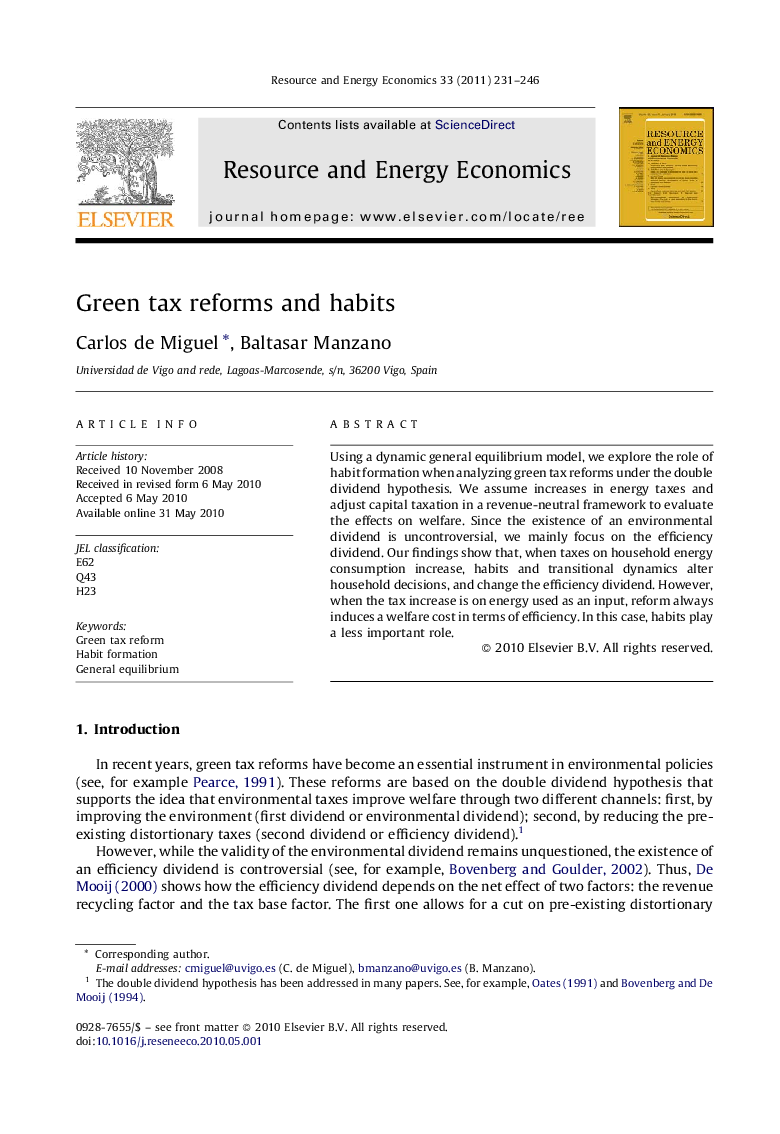| Article ID | Journal | Published Year | Pages | File Type |
|---|---|---|---|---|
| 986009 | Resource and Energy Economics | 2011 | 16 Pages |
Abstract
Using a dynamic general equilibrium model, we explore the role of habit formation when analyzing green tax reforms under the double dividend hypothesis. We assume increases in energy taxes and adjust capital taxation in a revenue-neutral framework to evaluate the effects on welfare. Since the existence of an environmental dividend is uncontroversial, we mainly focus on the efficiency dividend. Our findings show that, when taxes on household energy consumption increase, habits and transitional dynamics alter household decisions, and change the efficiency dividend. However, when the tax increase is on energy used as an input, reform always induces a welfare cost in terms of efficiency. In this case, habits play a less important role.
Related Topics
Physical Sciences and Engineering
Energy
Energy (General)
Authors
Carlos de Miguel, Baltasar Manzano,
